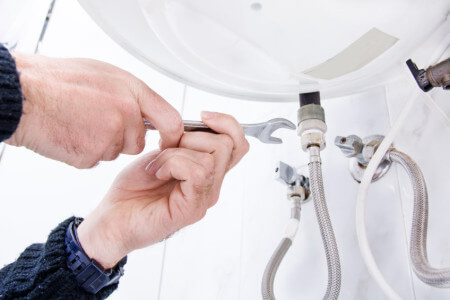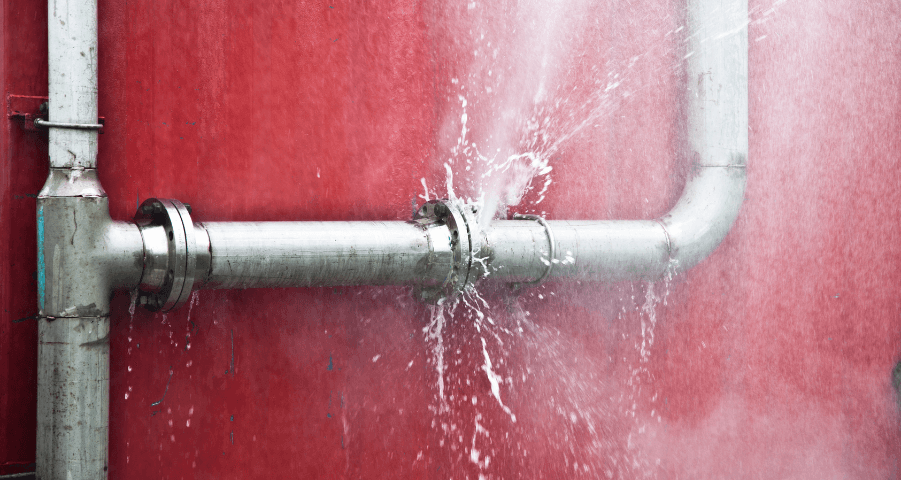Emergency Plumbing Tips: Actions to Follow Until Help Arrives
Emergency Plumbing Tips: Actions to Follow Until Help Arrives
Blog Article
The publisher is making a number of great annotation relating to Expert Tips for Managing a Plumbing Emergency Until Help Arrives overall in this content on the next paragraphs.

Plumbing emergency situations can strike at any time, creating tension and possible damage to your home. Whether it's a ruptured pipe, a clogged up drain, or a dripping faucet, recognizing exactly how to manage the scenario till a professional plumbing professional shows up can save you from more problems. This article gives vital emergency situation plumbing pointers to assist you mitigate damages and restore control during a pipes crisis.
Switch off the Supply Of Water
The very first step in any type of plumbing emergency situation is to turn off the water. For localized issues, such as a dripping faucet or bathroom, turn off the shutoff near the fixture. When it comes to a major leakage or burst pipe, situate your home's primary water shut-off shutoff and turn it off quickly. Understanding the area of these valves ahead of time can save beneficial time during an emergency situation.
Address Tiny Leaks with Short-lived Repairs
Tiny leakages can quickly come to be considerable problems if left untreated. Make use of these momentary fixes up until professional aid arrives:
While these solutions aren't long-term, they can aid minimize water loss and damages.
Unclog Drains Pipes Safely
A clogged up drainpipe can be an aggravating and unpleasant issue. Right here's just how to tackle it:
If these approaches don't work, prevent making use of too much force, as it may aggravate the clog.
Take Care Of Overflowing Toilets
An overflowing toilet can trigger instant disorder. Below's what you should do:
Shut down Your Hot Water Heater
In specific emergencies, such as a burst pipeline, it's smart to turn off your water heater. This prevents getting too hot or damages to the system when water stops moving. Shut off the power supply to the water heater (electric or gas) and allow it cool off to avoid potential threats.
Briefly Stop a Ruptured Pipeline
A burst pipeline can cause considerable water damage in mins. To reduce the issue:
Call a specialist plumbing immediately to attend to the problem completely.
Deal With Frozen Pipeline Meticulously
In chillier environments, frozen pipelines are a typical emergency situation. If you think an icy pipe:
Prevent Additional Damages
Taking quick action to decrease damage can conserve you money and time in the long run. Below's how:
. Have an Emergency Situation Pipes Package
Prepare a standard pipes emergency situation kit to take care of small concerns effectively. Your kit should consist of:
Having these tools on hand can make a significant difference in your ability to manage emergencies.
Know When to Call a Professional.
While quick fixes can aid momentarily, particular pipes problems require prompt expert attention. Call a plumber if:.
Without delay speaking to a specialist makes sure the concern is resolved correctly and prevents further problems.
Conclusion.
Plumbing emergencies can be frustrating, yet with the best understanding and devices, you can take care of the situation efficiently up until assistance shows up. By switching off the water, addressing small leaks, and utilizing momentary solutions, you can decrease damages and keep your home safe. Remember, these suggestions are short-term options; constantly get in touch with a licensed plumber to manage the origin of the trouble. Prep work and fast thinking are your best allies in any plumbing emergency.
8 Helpful Tips for Managing Plumbing Emergencies at Home
If your plumbing system hasn’t failed once, wait for it because almost everyone has a story to tell. Sometimes, it could be simple emergencies such as a leaking pipe, a blocked cistern, or even a big burst pipe. In situations like this, you need to have some handy tips to save you some money and from possible damages.
Take care of minor issues early.
Sometimes, you could have avoided an emergency by taking proactive measures while it was still early. Some major plumbing emergencies can be a result of an ignored minor issue. We recommend that you have items like plumbing tapes and other related items. A plumbing tape can allow you to manage minor leaks before the plumber arrives.
Cut off the water supply.
This tip is essential in almost any type of leakage problem. For problems like minor leakages in the toilet or kitchen, turn off the supply that takes water to the affected pipes. If the leakage is a major pipe, you must shut off the supply valve to the entire building. This will help you avoid flooding your home and neighbors if you share a flat.
Know your plumbing system
Folks typically move into a new apartment without understanding the water supply around the building. This can prove disastrous if a water emergency arises and the plumber is far away. The previous tip will prove useless if you don’t practice this one. More importantly, know where your water shut-off valve is located – you’ll need that knowledge to prevent potential home floods.
Have some common handy tools
There are lots of plumbing emergencies that you can handle without hiring a plumber. That’s why you must keep some tools available always. Some tools that you can use to fix simple plumbing emergencies easily include plumbing tapes, screwdrivers, thread seal tapes, plungers, pliers, tape measures, and rubber gloves.
Insulate your pipes from cold
You’ll save yourself from many plumbing expenses if you protect your water pipes from the cold. This is because of the harmful effects that cold weather can have on your pipes. During winter, your pipes can burst from being overly expected to freezing temperatures. So, make sure insulators are there to keep the pipes working correctly.
Avoid practices that will clog your toilet.
Many people indulge in practices that can damage the plumbing system of the entire building. One of these is when they use their toilet to dispose-off garbage. They flush all kinds of things, such as paper towels, bandages, hairs, female sanitary products, etc., down the toilet. This will block your toilet in the long run, incurring unnecessary expenditures. Dump such waste in the trash instead.
Check your dials regularly.
Sometimes, there could be leakages in your home without noticing them in time. So, constantly monitor your water meter dial. If the dial is reading when there is nobody using water, this is an indicator that there is leaking. Check for leaks immediately. Call a plumber as soon as possible if you can’t find any.
https://www.constructionplacements.com/8-helpful-tips-for-managing-plumbing-emergencies-at-home/

I'm just very involved in What to Do While Waiting for an Emergency Plumber and I really hope you enjoyed the entire article. Sharing is nice. Who knows, you will be helping someone out. Thanks a lot for your time spent reading it.
Call Report this page